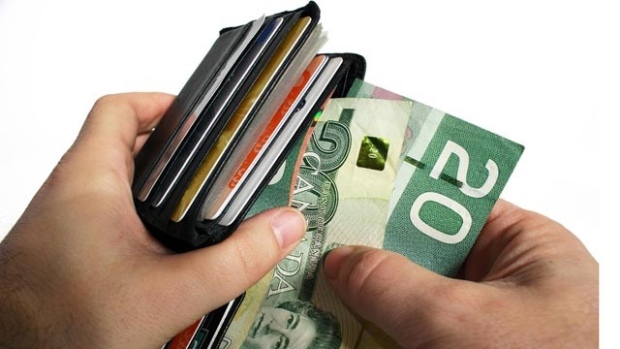Sep 7, 2018
Pattie Lovett-Reid: This is your golden opportunity to dig out of debt

We thought we had the luxury of time – but maybe we don’t. The time to act on paying off debt is now, as the window of opportunity appears to be closing after Bank of Canada Senior Deputy Governor Carolyn Wilkins caught currency traders by surprise yesterday afternoon.
She revealed in a speech the central bank discussed abandoning its boilerplate “gradual approach” language on interest rate increases earlier this week, but ultimately decided that verbiage is still appropriate.
In the post-recession decade we have been enjoying an ultra-low rate environment all in an effort to kick start the Canadian economy. The good news, in an ironic sort of way, is you have been part of the solution. Our reluctance to turn a blind eye to cheap money has helped prop up the economy. The bad news is, YOU now have a problem: As the economy heals, many Canadians face overwhelming levels of personal debt and are painfully under-saving for retirement and for emergencies.
The Bank of Canada is itching to raise rates once wildcards such as business investment resumes and NAFTA negotiations shed some light on the direction of trade. When that happens your variable rate debt is about to, once again, get more expensive. By now, I think you know that. We have seen incremental interest rate movements higher, which will likely continue as the economy re-inflates.
However, it isn't all doom and gloom. In a recent Canadian Association Payroll survey 66 per cent of those surveyed said they were in a better financial position this year than they were a year ago. Meanwhile, thirty-nine per cent of respondents said they’re optimistic the economy is in fact getting stronger. Could this mean I'm starting to preach to the converted? Maybe!
At the same time, 40 per cent of respondents indicated they feel overwhelmed with their debt levels. What we have to remember is, being in a better position year-over-year doesn't mean financial strength but it does mean financial improvement.
When rates resume their upward trajectory it will be a day of reckoning for some. But for others who have begun to curb their spending and are looking to take charge of their financial situation, there is reason for optimism.
If becoming debt-free is a goal for you, here are a few of my favourite financial lessons:
1. Debt is dumb and cash is king.
2. You can't increase your credit card debt if you don't have one.
3. Achieving financial freedom isn't about doing one big thing right – it is about doing a lot of little things right, including:
- Stop mindless spending – you don’t need that designer coffee
- Eat in, not out
- Reduce waste
- Cancel subscriptions
- Consider staycations
- Be content with what you have
4. Stop borrowing against yourself and your financial future by taking money out of your home or RSP
5. Budgets work
6. Only you can control your purchases
7. Confront your financial facts and surround yourself with people who will support you
8. Set financial goals that excite you. Change is hard and this is where the real discipline kicks in
9. Pay yourself first or your credit card company if you have debt. Arrange automated savings plans that take money directly off your paycheque. If you don't see you won't spend it
10. Negotiate all contracts – better rates might be yours for the taking but it won't happen if you don't ask
We have become a consumption-oriented society and have found ourselves in financial quicksand. As the country has worked hard to turn itself around, know that you too can reverse course if you decide to.
It is hard work getting out of debt and it may require bold move, but you didn't get into debt overnight so set your expectations accordingly.
Here is my dream: One day in the not too distant future, I hope (even if you only say it to yourself) you will find yourself saying, "Surprise I'm wealthy. I made it by my standards.” When you think about it, really those are the only standards that matter at all.






